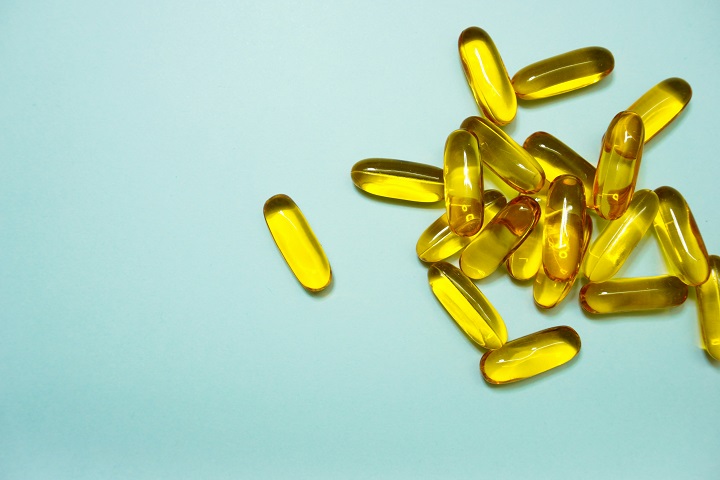Niacinamide, a form of vitamin B3, is crucial for your body’s energy production and metabolic functions. It helps prevent B3 deficiency and may treat acne and eczema. While it’s used for various health conditions like acne, diabetes, and skin issues, scientific evidence is limited. You can find niacinamide in animal products like meat and chicken and as nicotinic acid in plant foods like nuts, seeds, and green veggies. Niacinamide is often included in multivitamin capsules to support overall health and well-being.
Table of Contents
1. Benefits of Niacinamide:
Enhances Skin Barrier Function:
One of the most celebrated benefits of niacinamide is its ability to strengthen the skin’s natural barrier. By bolstering the lipid barrier, niacinamide helps to lock in moisture and prevent transepidermal water loss, resulting in hydrated, resilient skin. This property makes niacinamide particularly beneficial for individuals with dry, sensitive, or compromised skin barriers.
Reduces Hyperpigmentation:
Niacinamide’s skin-brightening properties make it an invaluable ally in the quest for a more even complexion. This compound inhibits the transfer of melanin to the skin’s surface, effectively reducing the appearance of dark spots, sun damage, and hyperpigmentation. Regular use of niacinamide can lead to a brighter, more luminous complexion with diminished discoloration.
Minimises Pore Size:
For those grappling with enlarged pores and uneven texture, niacinamide offers a promising solution. By regulating sebum production and improving skin elasticity, niacinamide helps to tighten enlarged pores and refine the skin’s surface. This leads to a smoother, more uniform complexion with reduced visibility of pores.
Controls Sebum Production:
Excess sebum production can contribute to various skin care woes, from acne breakouts to oily skin. Niacinamide exerts sebostatic effects, meaning it regulates sebum production without stripping the skin of its natural oils. By keeping oil production in check, niacinamide helps to prevent breakouts and maintain a balanced, matte complexion.
Anti-inflammatory Properties:
Inflammation is a common denominator in many skin conditions, including acne, eczema, and rosacea. Niacinamide exhibits potent anti-inflammatory properties, soothing redness, calming irritation, and reducing skin sensitivity. This makes niacinamide an excellent choice for individuals with inflammatory skin conditions seeking relief and comfort.

2. Uses of Niacinamide:
Skincare: Niacinamide is commonly used in skincare products for its ability to strengthen the skin barrier, improve moisture retention, and reduce the appearance of fine lines and wrinkles. It also effectively treats hyperpigmentation, acne, and inflammatory skin conditions like eczema and rosacea.
Dietary Supplement: Niacinamide supplements, such as those found in Becosules, can be taken orally to support overall health. They may help improve cholesterol levels, promote heart health, and support brain function.
Medical Treatments: In some cases, niacinamide may be used as a medical treatment for conditions such as pellagra, a niacin deficiency disease characterized by symptoms like skin rashes, diarrhea, and dementia.
Cosmetics: Niacinamide is often added to cosmetics and hair care products for its skin and hair conditioning properties. It can help improve the appearance and texture of hair and nails.
3. Considerations of Niacinamide:
Side effects: Mild side effects of niacinamide supplementation may include nausea, vomiting, and diarrhea. In some cases, individuals may experience flushing, itching, or skin irritation, particularly with high doses. Rarely, allergic reactions such as hives or swelling may occur. If severe allergic reactions occur, immediate medical attention is necessary.
Dosage: The recommended dosage of niacinamide varies depending on age, health status, and specific needs. For general health maintenance, typical doses range from 500 to 1000 milligrams per day, taken orally with food.
Precautions: Before taking niacinamide supplements, consult a healthcare professional, especially if you have any underlying medical conditions or are pregnant or breastfeeding. Individuals with liver disease, kidney disease, or gastrointestinal disorders should use niacinamide supplements with caution and under medical supervision.
Storage: Niacinamide supplements should be stored at room temperature, away from moisture and heat.
4. Sources of Niacinamide:
Meat: Beef, chicken, and turkey are rich sources of niacinamide.
Fish: Tuna, salmon, and other types of fish contain niacinamide.
Legumes: Peanuts, lentils, and beans are plant-based sources of niacinamide.
Multivitamins: Niacinamide is commonly included in multivitamin supplements, providing a convenient way to ensure adequate intake of this essential nutrient.
Whole grains: Foods like brown rice, wheat, and barley provide niacinamide.
Fortified foods: Some breakfast cereals, bread, and other fortified foods contain added niacinamide.
Vegetables: Mushrooms, avocados, and green peas are vegetable sources of niacinamide.
Conclusion:
Niacinamide, fortified in products like Becosule, epitomizes the revolutionary potential of skincare science, providing a comprehensive strategy for attaining vibrant, healthy skin. Its versatile benefits, from strengthening the skin barrier to addressing hyperpigmentation and inflammation, underscore its indispensability in skincare routines.
Whether incorporated into topical formulations or consumed orally, niacinamide emerges as a cornerstone of skincare, offering tangible improvements and a luminous complexion to those who recognize its efficacy.

